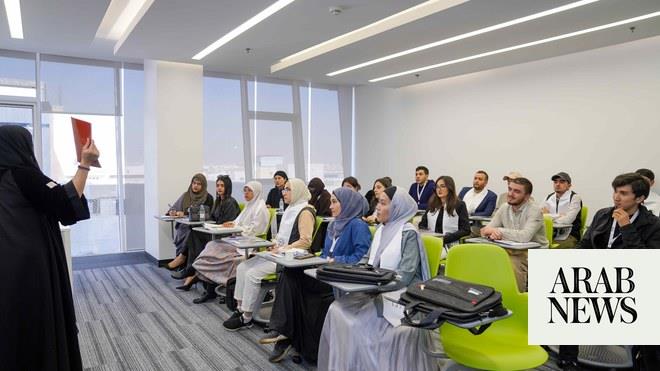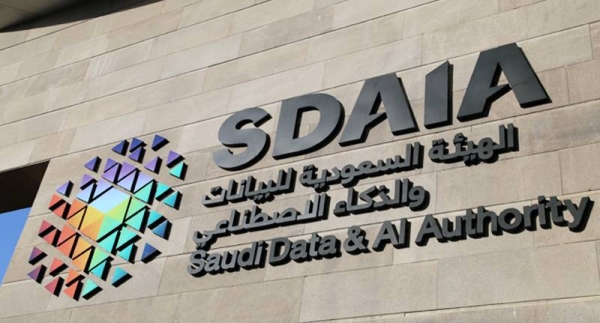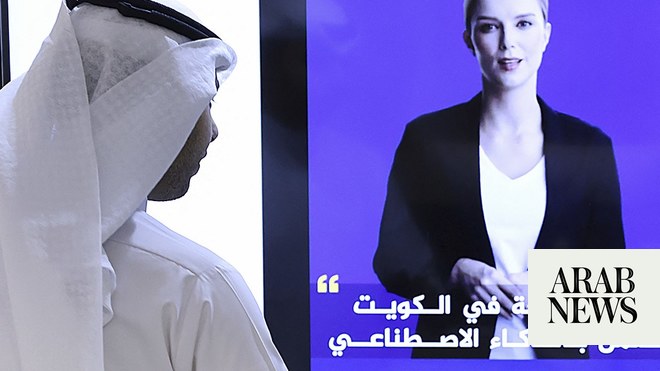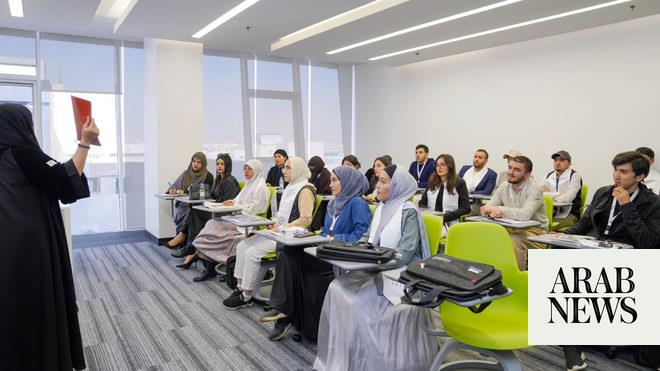
LONDON: After being one of the first newspapers to invest in artificial intelligence, Elaph, a London based Arabic newspaper has officially launched their AI figure named Hala Al Wardi.
In May, Elaph founder Othman Al-Omair announced that the paper that it is investing in artificial intelligence, making it the first such publication to do so.
“Twenty-two years ago, Elaph foresaw the possibility of dealing with news in a virtual way, as it was the first Arab online daily,” Omair, who is also the editor-in-chief, said at the time,
“Today, it is looking forward to the future of accurate news, and finds that there is a major role being played by this kind of news in the world of artificial intelligence,” he added.
Caledonia Edmond, the head of partnerships at London-based Elaph, told Arab News in a pervious interview that AI and journalism will go “hand in hand” in the future.
“I think it will definitely be like a symbiotic relationship with AI and journalism,” said Edmond.
She asserted that AI would “revolutionize” both how journalists do their work, as well as the relationship between news and audience. “It will help journalists discover what is really going on in the stories (and) will be a good complement to journalism,” she added.
Its AI feature Advancia.ai will serve a variety of functions within the publication, said Edmond.
“We’re going to be using it for a lot of different things,” she said. “We want to have more of an immersive experience.”
Advancia was developed as a joint venture between Elaph and Virtual Minds, which specializes in media and digital technologies. Edmond explained that the publication is not only a partner in the venture but also the “proof of concept.”
Advancia’s features include customizable news services, AI-based digital human-like news anchors, and news credibility checks, which are aimed at enabling news organizations to provide personalized, accessible, and credible content to their audiences.
Despite AI’s growing adoption, concerns have been apparent, particularly in news media where AI can generate false information and images more easily than humans.
Al-Omair, however, remains confident.
He said: “Yes, there is the bad side of it, which is fake stories and fake pictures, but in the future people will get used to it and they will find the right way to use it.”
Elaph’s adoption of AI is part of a larger strategy that includes attracting younger audiences. Edmond expects the younger, tech-savvy audiences to gravitate toward the new offerings first, with the rest of the readers adopting it over a longer period of time.
The paper also plans to ramp up its social media strategy and “grab young kids’ attention,” she added.
“We’re going to reach out to the young people (on social media) and have them start creating content and then featuring it,” said Edmond.
Elaph is not only aiming to expand its reach to a younger audience, but also a wider geography.
It plans to publish in other languages such as Hebrew and Kurdish as well as cater to “minorities like Amazighs (Berbers) in Morocco,” Al-Omair said.
“This is one of the fields which (has) been neglected by media,” he added.
Elaph’s AI technology has been in development for a long spell and the time is “finally” right, said Al-Omair.












